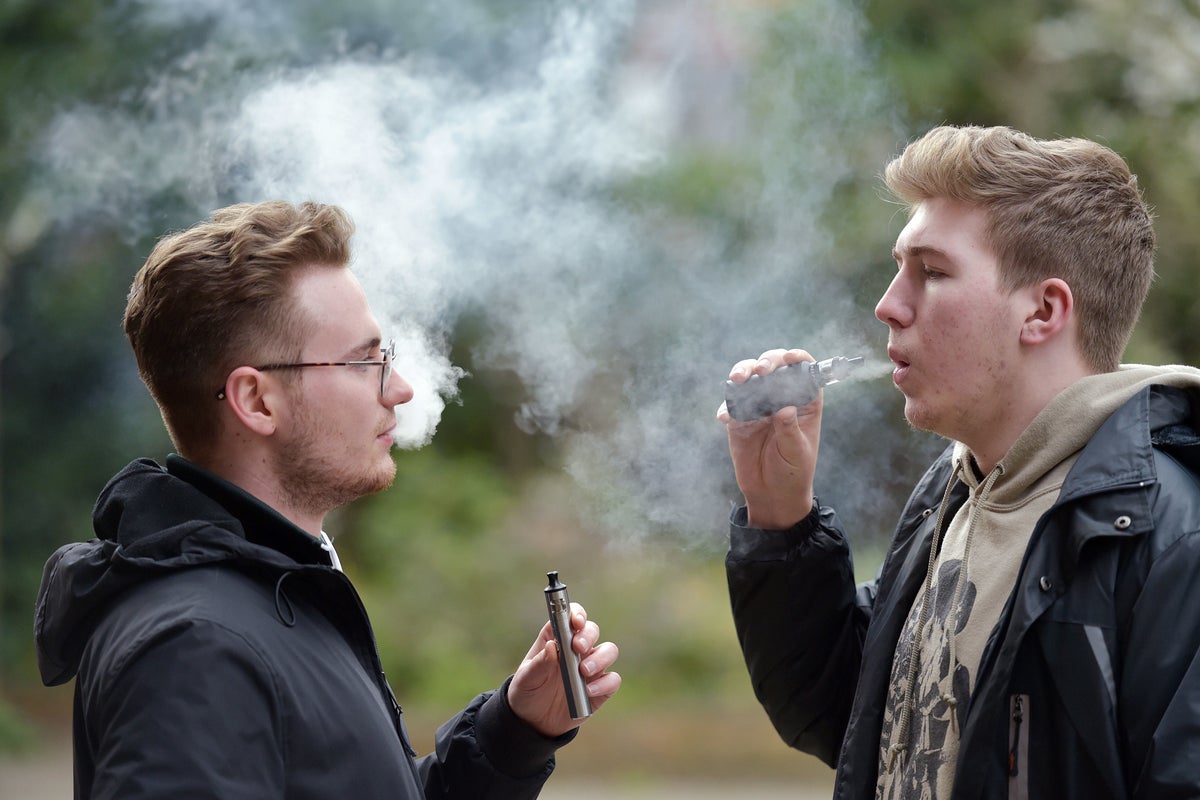Health
Experts Call for Stricter E-Cigarette Regulations to Protect Youth

Academics have raised alarms over the widespread use of vapes among children, asserting that it compromises their human rights. They are advocating for stricter regulations on e-cigarettes to protect young people from the harmful effects of nicotine. This warning follows a new analysis published in The BMJ by researchers from the UK, Australia, and the Netherlands.
The analysis reveals troubling trends, including reports of children skipping lessons to vape and experiencing difficulties concentrating in classrooms due to nicotine dependence. The researchers emphasize that teenagers are particularly vulnerable to nicotine exposure, which may lead to long-term effects on attention, cognition, memory, and mood.
According to the study, young individuals are at a higher risk of developing nicotine addiction, which can worsen issues related to addiction and substance abuse later in life. Tom Gatehouse, a researcher from the University of Bath, noted that vape use could serve as a gateway to traditional tobacco smoking. He and his colleagues argue that governments often overlook the dangers faced by children, swayed by industry claims about the benefits of vaping for adult smokers.
The researchers stress that any potential advantages of vaping primarily benefit current smokers transitioning to e-cigarettes. They caution against misconstruing this benefit as a reduction in overall harm, asserting that it does not justify the widespread availability of harmful and addictive products to largely non-smoking populations, including children.
The data indicate a concerning trend: children are now using e-cigarettes at higher rates than adults. In response to this growing issue, the World Health Organization (WHO) called for urgent action to address youth vaping in 2023. The academics assert that such measures are not only essential from a public health perspective but also mandated by international human rights law.
They reference the UN Convention on the Rights of the Child, which has significantly influenced policies impacting children’s health. The researchers believe this convention, alongside the WHO’s tobacco control framework, can provide a robust legal foundation for e-cigarette regulations prioritizing children’s health.
As the debate around vaping continues, the call for action from experts highlights the need for a comprehensive approach to safeguard the rights and well-being of young people. The implications of inaction could resonate for years, affecting future generations.
-

 Health2 months ago
Health2 months agoNeurologist Warns Excessive Use of Supplements Can Harm Brain
-

 Health3 months ago
Health3 months agoFiona Phillips’ Husband Shares Heartfelt Update on Her Alzheimer’s Journey
-

 Science3 weeks ago
Science3 weeks agoBrian Cox Addresses Claims of Alien Probe in 3I/ATLAS Discovery
-

 Science3 weeks ago
Science3 weeks agoNASA Investigates Unusual Comet 3I/ATLAS; New Findings Emerge
-

 Science3 weeks ago
Science3 weeks agoScientists Examine 3I/ATLAS: Alien Artifact or Cosmic Oddity?
-

 Science2 weeks ago
Science2 weeks agoNASA Investigates Speedy Object 3I/ATLAS, Sparking Speculation
-

 Entertainment4 months ago
Entertainment4 months agoKerry Katona Discusses Future Baby Plans and Brian McFadden’s Wedding
-

 World2 months ago
World2 months agoCole Palmer’s Cryptic Message to Kobbie Mainoo Following Loan Talks
-

 Entertainment4 months ago
Entertainment4 months agoEmmerdale Faces Tension as Dylan and April’s Lives Hang in the Balance
-

 Science3 weeks ago
Science3 weeks agoNASA Scientists Explore Origins of 3I/ATLAS, a Fast-Moving Visitor
-

 Entertainment4 months ago
Entertainment4 months agoLove Island Star Toni Laite’s Mother Expresses Disappointment Over Coupling Decision
-

 Entertainment3 months ago
Entertainment3 months agoMajor Cast Changes at Coronation Street: Exits and Returns in 2025









